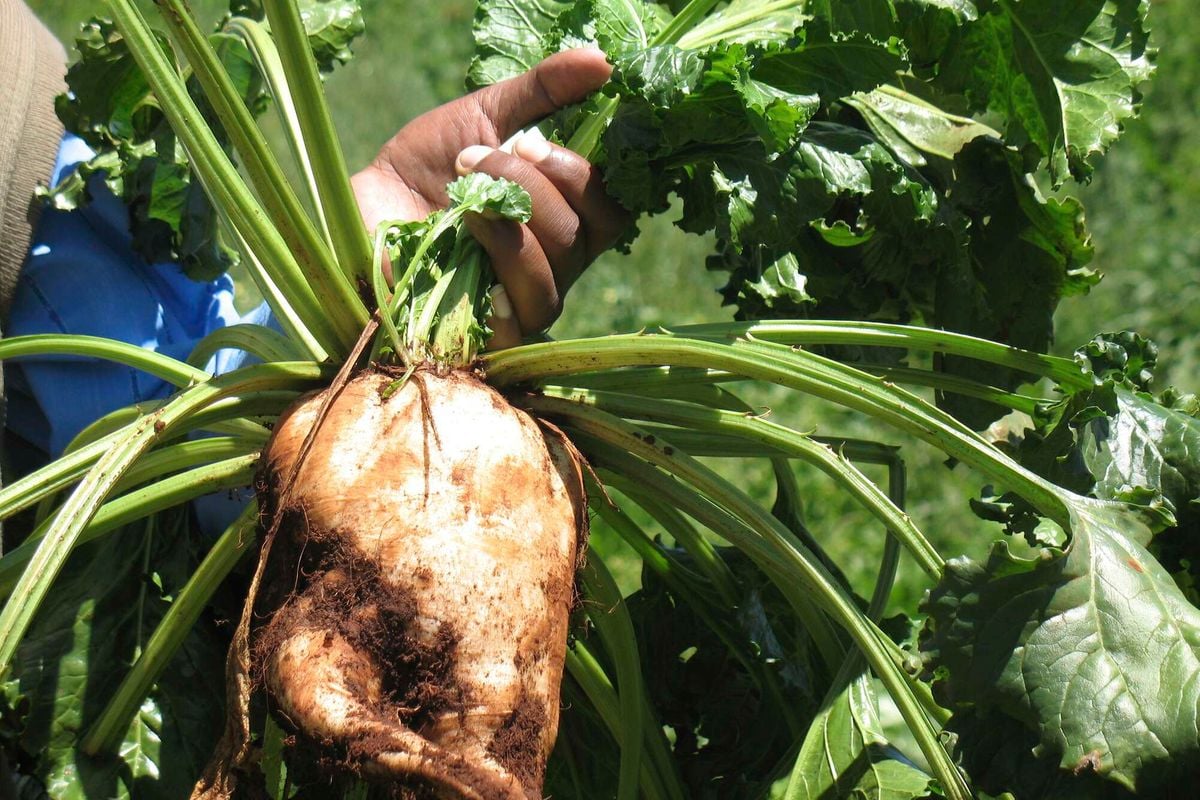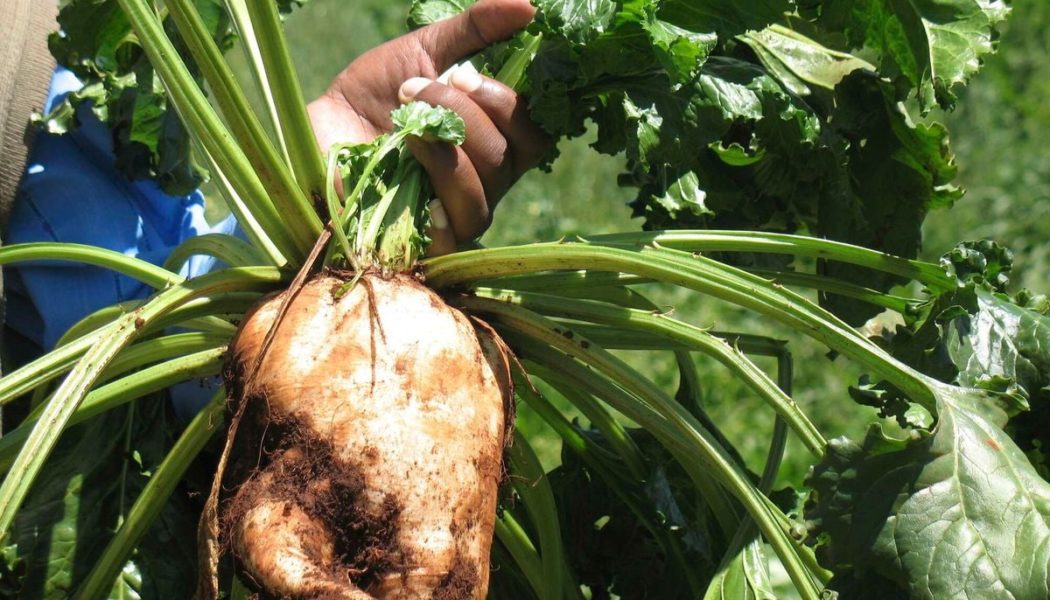
Researchers are pushing for the increased production of sugar beet, a type of root vegetable, to supplement the high demand for sugar and sweeteners in Kenya.
In Kenya, demand for sugar surpasses supply, forcing the country to import yet the researchers say sweeteners can be extracted from sugar beets, similar to countries such as the UK, where sugar from beets amounts to more than half of the sugar consumed in the the country.
James Kariuki, the founder of the International Research and Development says the tropical crop can be an alternative to sugar and a more efficient option to sugarcane.
“The sugar deficit that we experience as a country can be addressed by adopting the growth of sugar beet and processing it to extract sugar,” he told Business Daily.
Sugar beet is a root vegetable grown for its high sugar content and serves as one of the two main global sources of sugar, alongside sugarcane. It belongs to the Amaranthaceae family and contains 15 to 20 percent sucrose.
While the crop typically thrives in temperate climates, making it a key crop in regions like Europe, North America, and parts of Asia, Mr Kariuki says that Kenya’s climate is favourable for its cultivation.
In the UK, for instance, beets farming for sugar production dates back to 1912. By 2021, Financial Times, reported that about 3,000 growers across East Anglia and the East Midlands produced about eight million tonnes of sugar annually.
“It can grow anywhere in Kenya, including arid and semi-arid areas,” said the researcher.
International Research and Development, a Nairobi-based organisation, initially started as a stove-making company, dubbed Bio-Moto, which produced clean, eco-friendly cookers.
The cookers relied heavily on sugarcane by-products, but the closure of Mumias Sugar Company (though recently revived by the government) nearly shuttered Mr Kariuki’s venture.
“Between 2017 and 2019, I researched and settled on sugar beet as an alternative source of fuel for the stove,” he said.
The plant produces fuel used to power the cooker. In his research, Mr Kariuki collaborated with experts from Europe, partnering with seed breeders to crossbreed the best European sugar beet varieties with the local wild tropical species.
“Last year, in 2023, the Kenya Plant Health Inspectorate Service (Kephis) approved the commercialisation of the crop,” he said.
The researcher has since piloted sugar beet cultivation with over 300 farmers in Kiambu, Kisumu, Kakamega, Narok, and Kajiado.
While tropical sugar beet is primarily grown in temperate regions and is not widely cultivated in Africa, where the tropical climate favours sugarcane production, some African countries with cooler climates or specific agricultural projects have started experimenting with sugar beet.
These countries include South Africa, Kenya, Somalia, Uganda, Tanzania, Ghana, Nigeria, and Ethiopia. With the slow uptake of sugar beet cultivation, one might ask why it is more viable than sugarcane.
“Sugarcane matures in 12 to 24 months after planting, while sugar beet matures in six months. To seal the sugar deficit, sugar beet is the most viable option,” Mr Kariuki said.
Additionally, sugar beet is highly productive. According to Mr Kariuki, the crop, when grown using good agricultural practices, can yield between 120 to 160 tonnes per acre.
In contrast, small-scale sugarcane farmers typically produce 18.69 tonnes per acre, below the national average yield of about 24 tonnes, data from Kenya Sugar Board shows.
Sugarcane production has also contracted over the years. According to the latest Economic Survey, sugarcane production shrunk by 36.4 percent, from 8.8 million tonnes in 2022 to 5.6 million tonnes in 2023 as several sugar millers closed due to a shortage of mature cane for processing. Manufacture of sugar also declined by 40.7 percent in the review period.
Describing sugar beet as a multi-purpose crop, Mr Kariuki said that other by-products from sugar beet include agricultural lime, animal feed, fuel, polymers, and ethanol.
Polymers from sugar beet are biodegradable materials derived from the plant’s non-sugar components, such as pulp and fibres.
As Mr Kariuki continues to create public awareness of sugar beet, he calls on the government to liberalise the agricultural sector to unlock the opportunities it holds, as sugar beet farming could also offer farmers better returns following a drop in earnings from sugarcane which declined by 24.7 per cent from Sh39.4 billion in 2022 to Sh29.6 billion in 2023.
He urges the government to ease the process of commercialising crops like sugar beet, stating that it has taken years to commercialise its growth despite its numerous benefits.
“The government should instead focus on setting standards,” he said.









